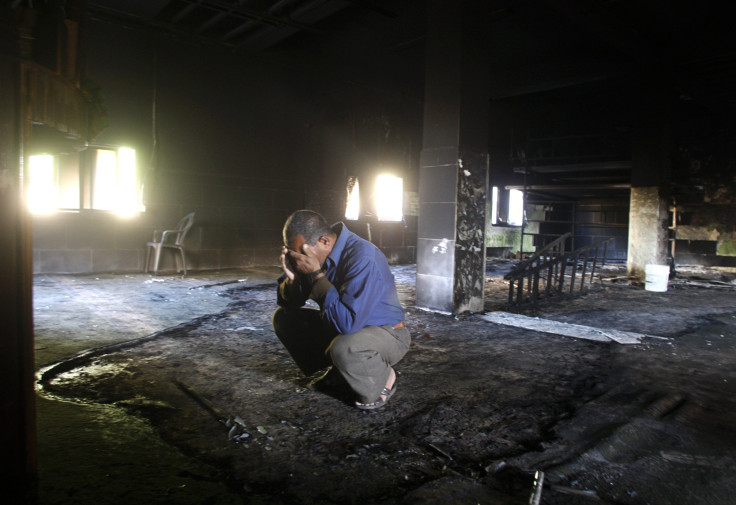Israel Wants To 'Judaise' Jerusalem, Ban Islamic Call To Prayer, Muslim Palestinian Activists Claim

Israeli soldiers reportedly raided three mosques in the Palestinian town of Abu Dis in Eastern Jerusalem early Friday to enforce a ban on playing the Muslim call to dawn prayers through loudspeakers. Military officials arrived before dawn to inform the muezzins, the men responsible for the call to prayer through the mosques’ pubic announcement speakers, of the ban and barred local Muslims from reaching the places of worship, according to local reports.
Lawyer Bassam Bahr, head of a local committee in Abu Dis, told Ma’an News that the Israeli forces that raided the al-Rahman, al-Taybeh and al-Jamia mosques did not provide any reason for the “unjustified ban.” The Muslim call to prayer, also known as the adha, acts in accordance to the religious tradition that God ordered Muslims to pray at five set times a day. It is the second pillar of Islam.
Bahr said the tradition is a fundamental part of Jerusalem’s identity. Along with Israeli policies limiting Palestinians’ free movements through checkpoints and issuing forceful detention raids though Palestinian towns, he claimed the ban was another way for the Israeli government to marginalize Palestinians living the West Bank in “all aspects of their lives.”
Abu Dis is located in the “Area B” part of the Gaza strip in the Jerusalem Governorate of the Palestinian National Authority, which is under joint Israeli and Palestinian control. Palestine wants the occupied West Bank and the Gaza Strip for a future state, with Arab East Jerusalem as its capital.
The events in Abu Dis came a day after a number of Israeli settlers from Pisgat Ze’en, an Israeli settlement in East Jerusalem, staged a protest against the Muslim call to dawn prayer, claiming that the “noise pollution” coming from the mosques violated the government's “noise regulation” that implements restrictions on the volume and timing of “noise” in public areas, Middle East Monitor reported.
The protesters voiced their opinions in front of the house of Jerusalem Mayor Nir Barakat, who responded by saying government authorities would collaborate with police to enforce future noise regulations on the Muslim call to prayer.
The ban follows a series of events in which the Palestinian Authority that governs the West Bank asked the United Nations Educational, Scientific and Cultural Organization to diminish the Jewish historical connection to religious and cultural icons such as the religious complex in Jerusalem known by the Jews as the Temple Mount complex and the Dead Sea Scrolls, the earliest copies of the Hebrew Bible known to man.
Kamel Hawwash, a British Palestinian engineering academic based at the University of Birmingham, voiced his opinion in the Middle East Monitor that Barakat's plan was part of, “Israel’s attempts to Judaise Jerusalem and empty the Holy City of its Islamic and Christian heritage."
The Eastern part of Jerusalem, the section of the city that is not completely Israeli-held, has experienced heightened tensions since October 2015 when the Israeli government issued a 48-hour ban on certain people entering the Old City, home of the Temple Mount complex. The ban applied to anyone who was not an Israeli citizen, tourist or a Palestinian already working or living in the area, the Times of Israel reported. Israel took the unprecedented step after two Palestinian killed two Israeli citizens and wounded three others within the walls of the Old City.
Roughly 180 Palestinians have been killed by Israeli forces since 2015 in what has been referred to as a Palestinian uprising, Press TV reported.
© Copyright IBTimes 2024. All rights reserved.






















